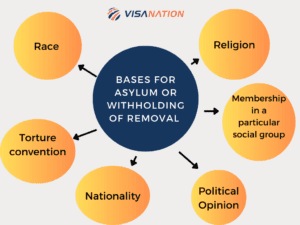How Often Should You Update Your Estate Plan?
2023-03-30
Posted at 20:25h
in Asset Protection, Estate Planning
Many people assume that once they set their affairs in order, the matter is closed. They don’t realize why it’s important to update your estate plan and review it on regular basis.
Throughout our lives we move homes, make new investments, add new family members, and often change our priorities. Your estate plan should always reflect your current wishes and circumstances, so it will need updates from time to time.
Why It’s Important to Update Your Estate Plan
A lot can happen between the time you draft your estate plan documents and the time you pass away. But aside from personal changes like purchasing new property or adding more family members, there can also be changes to state laws that affect your estate plan.
In order for your estate plan to work as intended, it’s essential to review it periodically with a professional. Your advisor will check to see that all of your documents are still legally valid, and that your estate plan includes all of your beneficiaries and assets.
You also need to make sure that you remove any property that you no longer own, and name new beneficiaries if any have passed away. This will make the distribution of your assets as simple as possible when you’re gone.
How Often Do You Need to Update Your Estate Plan?
You should never wait longer than five years before reviewing your estate plan. And it’s important that you go over every document in your estate plan, not just your will or trust. At Phelps LaClair, we meet with our clients every three years for a thorough review of their estate planning documents.
But there are times when you may need an update sooner than planned. If you have any major life events like having a baby or getting married, you should update your plan as soon as possible. Life is unpredictable, so don’t wait until your next review meeting, even if it’s only a year away.
Six Reasons to Update Your Estate Plan
1: You Have a New Child
When you give birth to or adopt a child, you must add them to your estate plan as soon as possible. It’s essential that you name a guardian who will care for them if something happens to you. If you don’t, the state will choose a guardian for your child instead.
You might also wish to name your child as the beneficiary of your life insurance policy, retirement account, living trust, or another asset. If you add your child as a trust beneficiary, you might also need to add certain stipulations, such as not distributing the funds until your child turns eighteen.
2: You Got Married
If you haven’t already, you may wish to add your spouse to your life insurance policy and retirement account. They may also be your new top choice for your power of attorney, executor, or trustee.
If you legally changed your name after marriage, you’ll need to update your estate planning documents with your new name. And if you want any new stepchildren to inherit, you’ll need to add them as well. Stepchildren are not legally considered your heirs and will not automatically inherit any of your assets.
3: You Got Divorced
If you get divorced, you’ll need to remove your ex-spouse from your plan, or change what you leave to them. Keep in mind that the beneficiary designations on life insurance policies and retirement accounts supersede a will. So if you leave your life insurance policies to your new spouse in your will, but the ex-spouse is still named on the policy, then the ex-spouse would inherit it.
4: Your Beneficiaries Changed
As soon as you decide you want to add someone new to your estate plan, you should do it right away. That goes for new grandchildren, nieces, nephews, step-children, etc. You also need to act quickly if one of your beneficiaries dies before you. Otherwise, their share of your estate will go to your next of kin.
It’s always a good idea to choose backup (contingent) beneficiaries. That way, if the primary beneficiary dies or refuses their inheritance, your secondary choice can claim it. And whenever you add or remove a beneficiary, make sure to update the names in every document.
5: You Bought a House
Whenever you buy real estate property, you should plan for who will inherit it when you die. It’s best to add it to your trust so the property transfers to your beneficiary without going through probate.
6: You Moved to a New State
Each state has its own set of estate planning laws. Just because your will is valid in one state doesn’t always mean it is valid in another state. Each state also has different laws about inheritance and estate taxes.
Plus, you’ll likely need to change your executor, trustee, and power of attorney designations if they now live too far away to effectively fulfill their roles. Always make sure to review and update your documents shortly after you relocate.
Review Your Estate Plan with a Professional
If you would like to review and update your estate plan, the Phelps LaClair team is here to help. We’ve been advising Arizona residents on how to create and maintain successful estate plans for over 40 years. Give 9us a call at 480-892-2488 today to schedule an appointment.
Images used under creative commons license – commercial use (3/30/2023). Photo by Karolina Grabowska on Pexels






